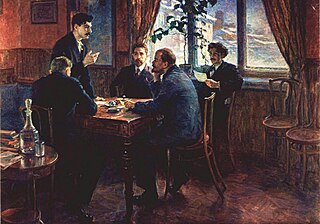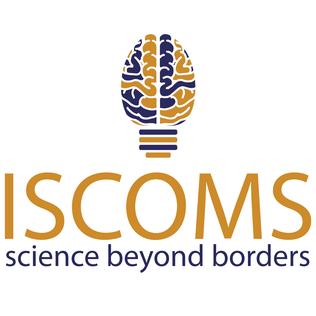Related Research Articles

Peer review is the evaluation of work by one or more people with similar competencies as the producers of the work. It functions as a form of self-regulation by qualified members of a profession within the relevant field. Peer review methods are used to maintain quality standards, improve performance, and provide credibility. In academia, scholarly peer review is often used to determine an academic paper's suitability for publication. Peer review can be categorized by the type of activity and by the field or profession in which the activity occurs, e.g., medical peer review. It can also be used as a teaching tool to help students improve writing assignments.
A pattern language is an organized and coherent set of patterns, each of which describes a problem and the core of a solution that can be used in many ways within a specific field of expertise. The term was coined by architect Christopher Alexander and popularized by his 1977 book A Pattern Language.

A conference is a meeting, often lasting a few days, which is organized on a particular subject, or to bring together people who have a common interest. Conferences can be used as a form of group decision-making, although discussion, not always decisions, is the primary purpose of conferences. The term derives from the word confer.
James O. Coplien, also known as Cope, is a writer, lecturer, and researcher in the field of computer science. He held the 2003–4 Vloeberghs Leerstoel at Vrije Universiteit Brussel and has been a visiting professor at University of Manchester.
WMSCI, the World Multi-conference on Systemics, Cybernetics and Informatics, is a conference that has occurred annually since 1995, which emphasizes the systemic relationships that exist or might exist among different disciplines in the fields of Systemics, Cybernetics, and Informatics. Organizers stress interdisciplinary communication, describing the conference as both wide in scope as a general international scientific meeting, and specifically focused in the manner of a subject-area conference.

An academic conference or scientific conference is an event for researchers to present and discuss their scholarly work. Together with academic or scientific journals and preprint archives, conferences provide an important channel for exchange of information between researchers. Further benefits of participating in academic conferences include learning effects in terms of presentation skills and "academic habitus", receiving feedback from peers for one's own research, the possibility to engage in informal communication with peers about work opportunities and collaborations, and getting an overview of current research in one or more disciplines.
Abstract management is the process of accepting and preparing abstracts for presentation at an academic conference. The process consists of either invited or proffered submissions of the abstract or summary of work. The abstract typically states the hypothesis, tools used in research or investigation, data collected, and a summary or interpretation of the data.

The Internet Governance Forum (IGF) is a multistakeholder governance group for policy dialogue on issues of Internet governance. It brings together all stakeholders in the Internet governance debate, whether they represent governments, the private sector or civil society, including the technical and academic community, on an equal basis and through an open and inclusive process. The establishment of the IGF was formally announced by the United Nations Secretary-General in July 2006. It was first convened in October–November 2006 and has held an annual meeting since then.

The International Student Congress Of (bio)Medical Sciences, also known as ISCOMS, is an annually held student congress on biomedical sciences. The primary aim of ISCOMS is getting medical students acquainted with research and its many elements. 552 participants from 64 countries attended the 30th edition of ISCOMS in 2023. The 31st edition of ISCOMS will take place from 3–6 June 2024 and the abstract submission is open until Januari 21.
Grantsmanship is the art of acquiring financial grants through the process of grant writing. This term is typically used when referring to the skills necessary to secure peer-reviewed research funding, but it can also apply more broadly to overall field of fundraising from private foundations, community foundations, corporate foundations, governments, and other grant-makers.

Pattern Languages of Programs is the name of a group of annual conferences sponsored by The Hillside Group. The purpose of these conferences is to develop and refine the art of software design patterns. Most of the effort focuses on developing a textual presentation of a pattern such that it becomes easy to understand and apply. This is typically done in a writers' workshop setting.
Submission Management is the art and science of collecting and managing any kind of submissions. Traditionally, submissions were collected offline i.e. in the form of 'hard' paper files or folders. However, with the recent penetration of Internet in almost every sphere of life, there has been a steady shift towards collecting electronic submissions as compared to hard copies of submissions. The Internet has also facilitated a change in the perception towards the deliverables or contents of a submission. As a result of this, submitting audio and video files, pictures and presentations in addition to standard text, word and pdf-like documents has become common in the last few years.
Organizational patterns are inspired in large part by the principles of the software pattern community, that in turn takes it cues from Christopher Alexander's work on patterns of the built world. Organizational patterns also have roots in Kroeber's classic anthropological texts on the patterns that underlie culture and society. They in turn have provided inspiration for the Agile software development movement, and for the creation of parts of Scrum and of Extreme Programming in particular.
The Interservice/Industry Training, Simulation and Education Conference (I/ITSEC) is an annual conference in Orlando, Florida organized by the National Training and Simulation Association held at the Orange County Convention Centre, a large conference and exhibition centre located on Exhibition Drive on the south side of Orlando.

The Hillside Group is an educational nonprofit organization founded in August 1993 to help software developers analyze and document common development and design problems as software design patterns. The Hillside Group supports the patterns community through sponsorship of the Pattern Languages of Programs conferences.
Peer feedback is a practice where feedback is given by one student to another. Peer feedback provides students opportunities to learn from each other. After students finish a writing assignment but before the assignment is handed in to the instructor for a grade, the students have to work together to check each other's work and give comments to the peer partner. Comments from peers are called as peer feedback. Peer feedback can be in the form of corrections, opinions, suggestions, or ideas to each other. Ideally, peer feedback is a two-way process in which one cooperates with the other.
Scholarly peer review or academic peer review is the process of having a draft version of a researcher's methods and findings reviewed by experts in the same field. Peer review is widely used for helping the academic publisher decide whether the work should be accepted, considered acceptable with revisions, or rejected for official publication in an academic journal, a monograph or in the proceedings of an academic conference. If the identities of authors are not revealed to each other, the procedure is called dual-anonymous peer review.
An authors' editor is a language professional who works "with authors to make draft texts fit for purpose". They edit manuscripts that have been drafted by the author but have not yet been submitted to a publisher for publication. This type of editing is called author editing, to distinguish it from other types of editing done for publishers on documents already accepted for publication: an authors' editor works "with an author rather than for a publisher". A term sometimes used synonymously with authors' editor is "manuscript editor" which, however, is less precise as it also refers to editors employed by scholarly journals to edit manuscripts after acceptance.

The Association of Chiropractic Colleges (ACC) is composed of accredited chiropractic educational programs in North America and affiliate member institutions worldwide. Its stated goal is to advance chiropractic education and research among its member institutions, which it achieves through a number of regularly scheduled conferences.
Writing workshops are group sessions where writers gather to share, critique and improve their work. Various models of writing workshops have been developed over time to suit different educational settings and writing goals. Workshop attendance might be restricted to a select group or open to the public.
References
- ↑ Hoffman, Scott Hoffman. "Literary Agents Explain Why They Attend Conferences (And It's Not What You Think)". Writers Digest.
- ↑ "Writers' Conference and Intensives: Hunter College's 4th Annual Writers' Conference". Hunter.CUNY.edu. 7 June 2014. Archived from the original on 14 July 2014. Intensive writing workshops precede the conference.
- ↑ "Shepherding". The Hillside Group. Archived from the original on 22 February 2008. Retrieved 4 January 2008.
- ↑ "Writers' Workshop". The Hillside Group. Archived from the original on 8 August 2007. Retrieved 4 January 2008.